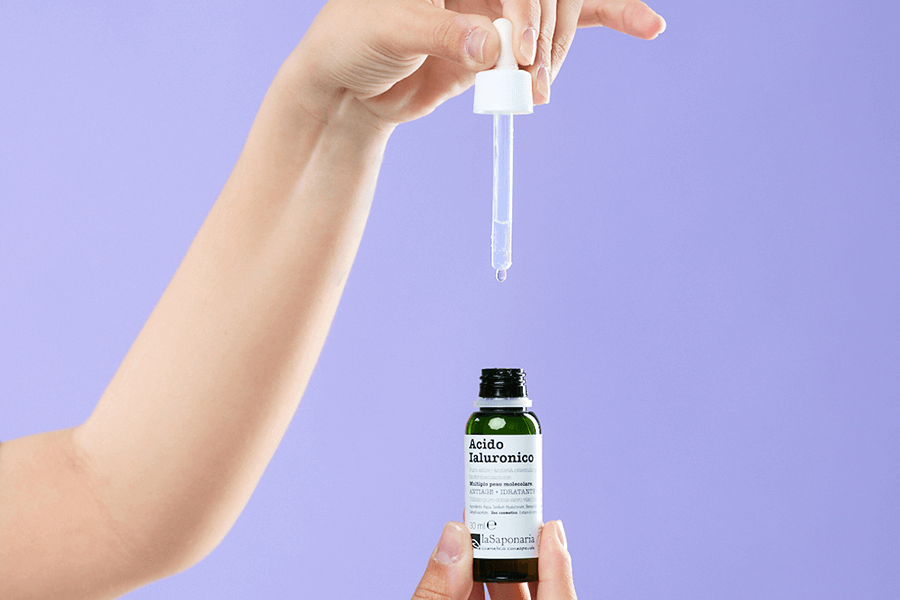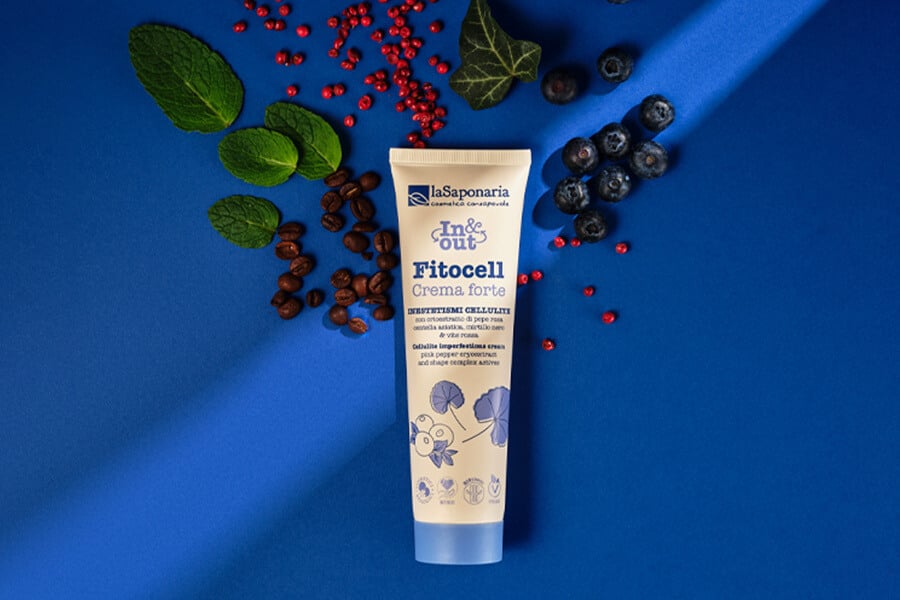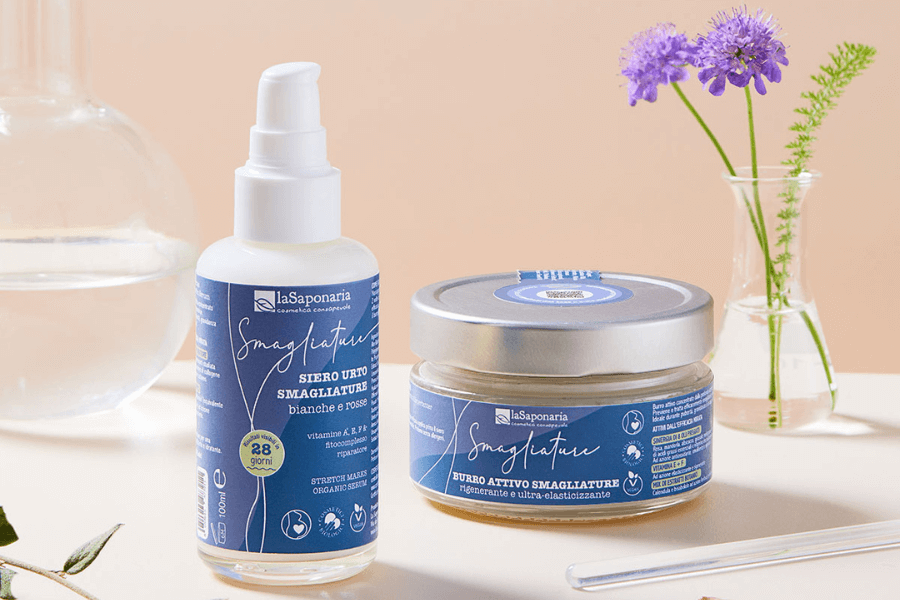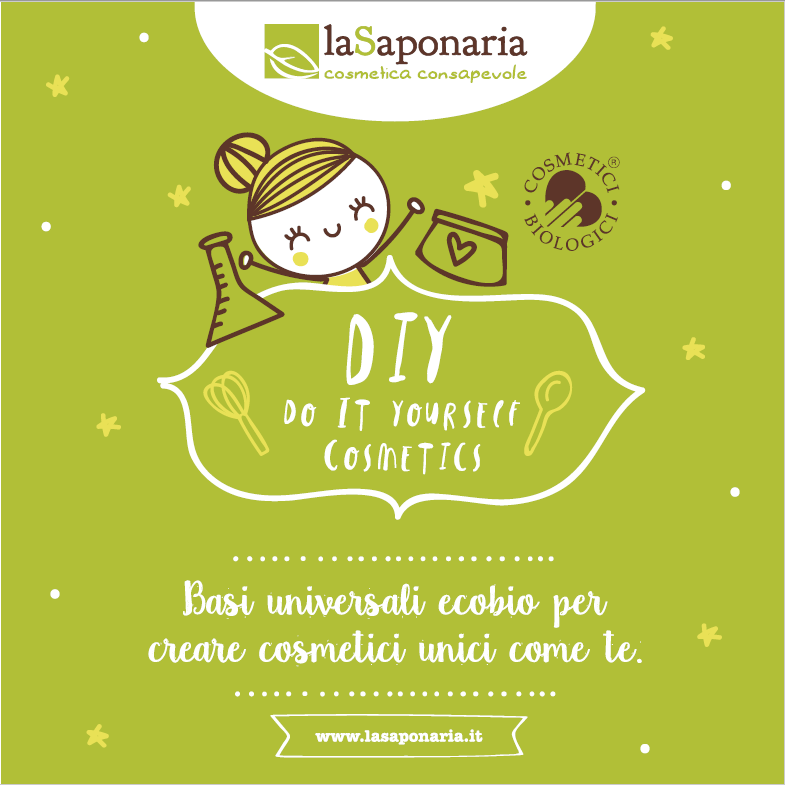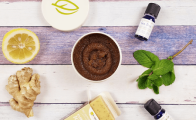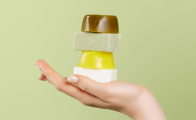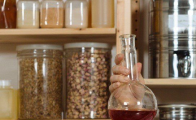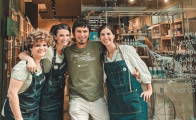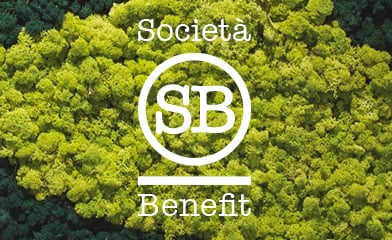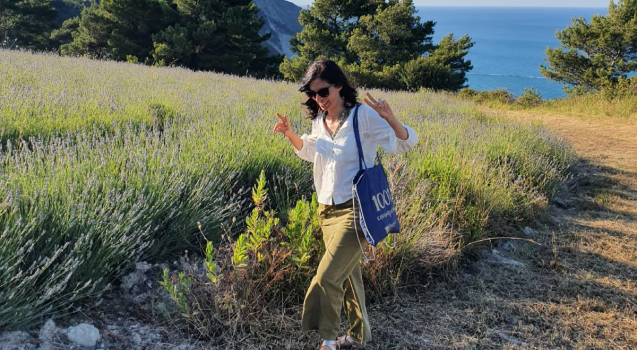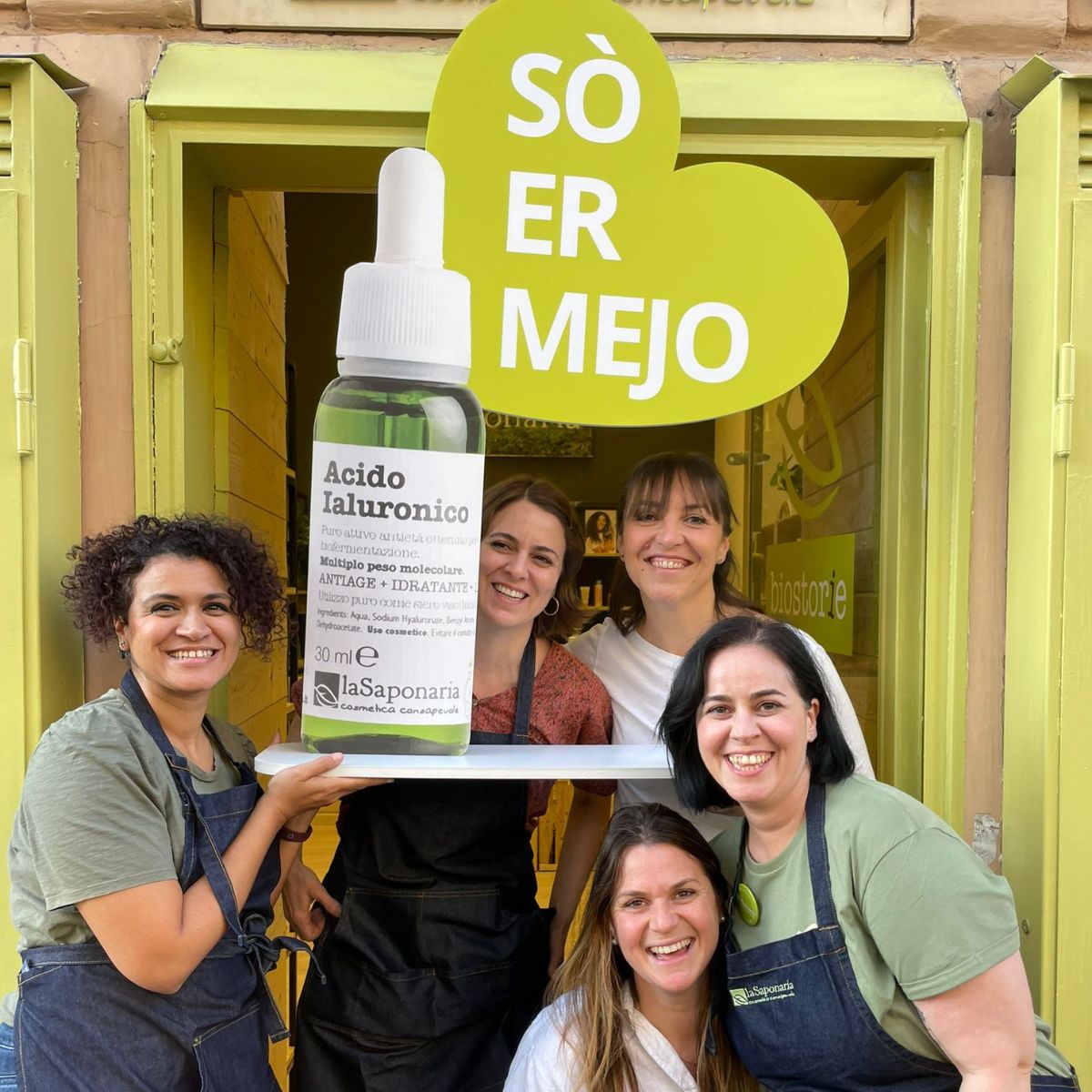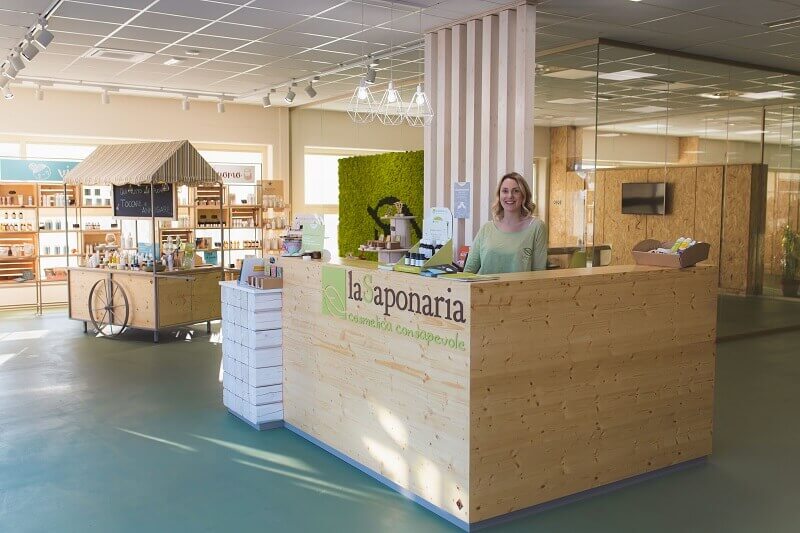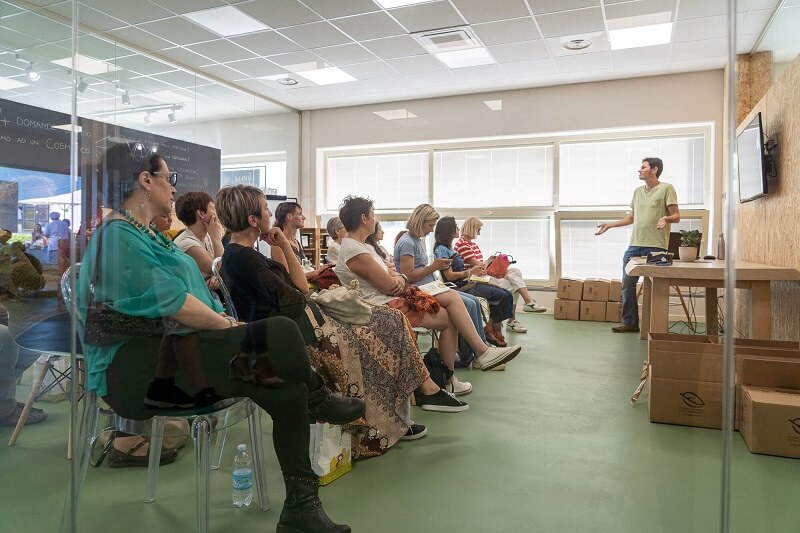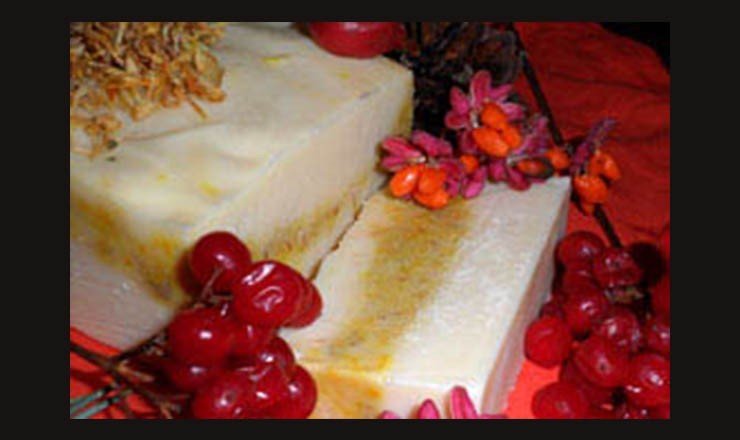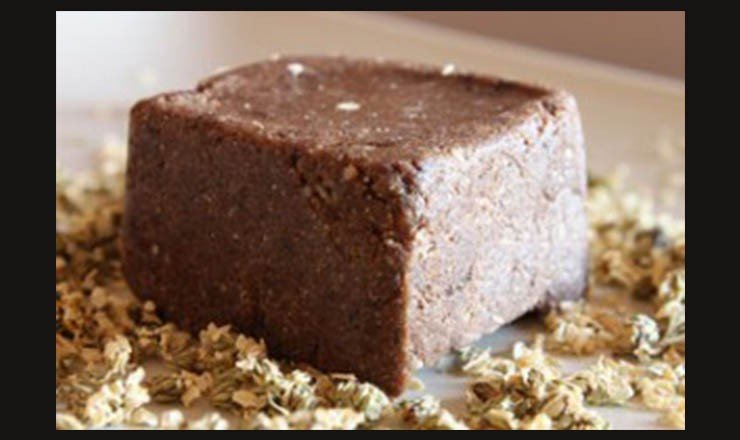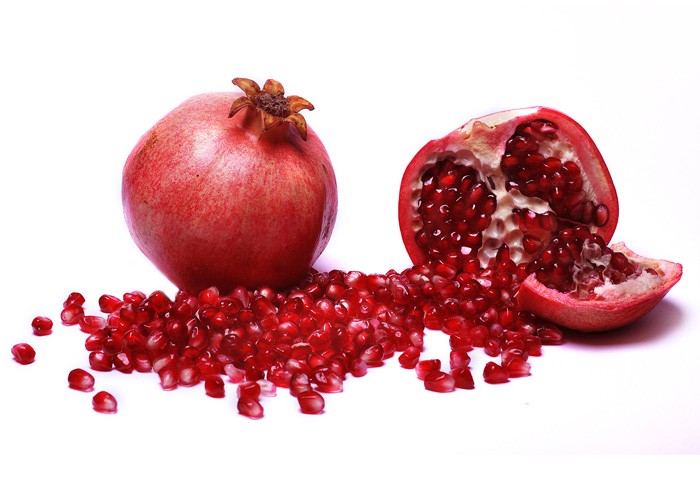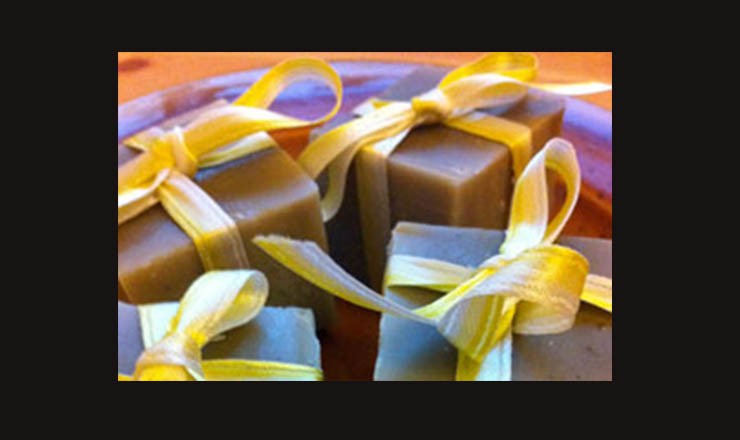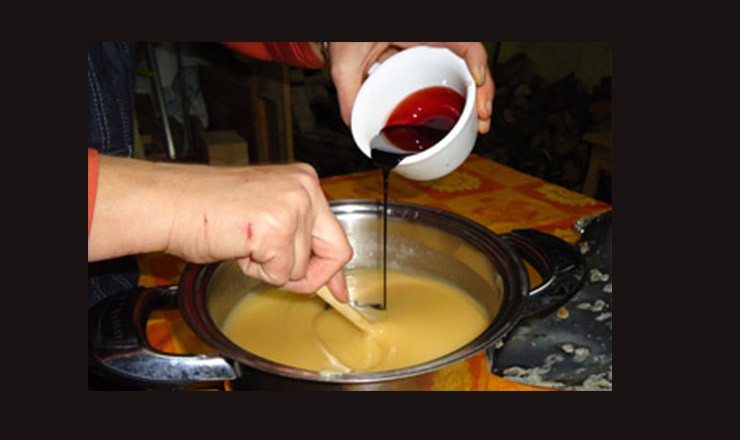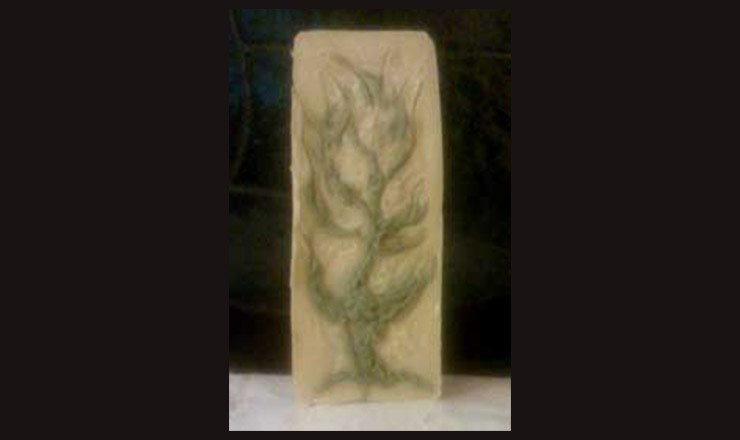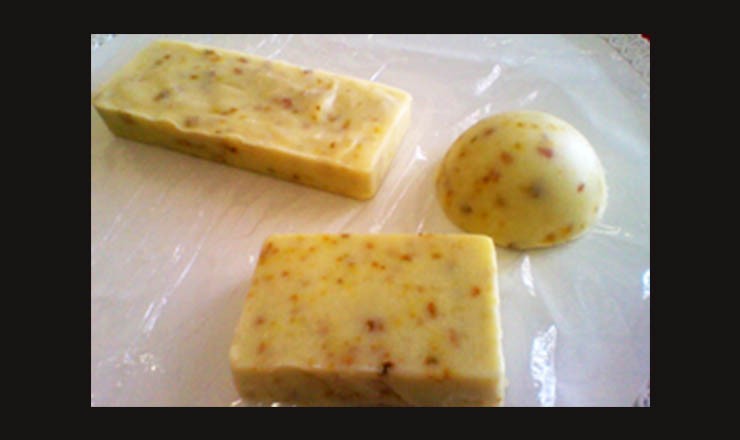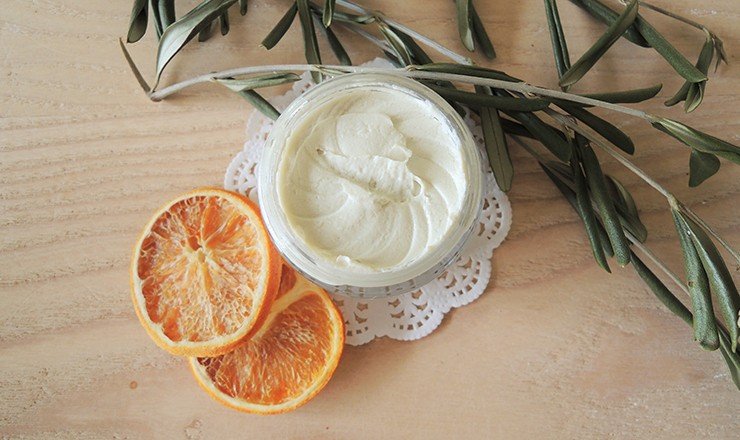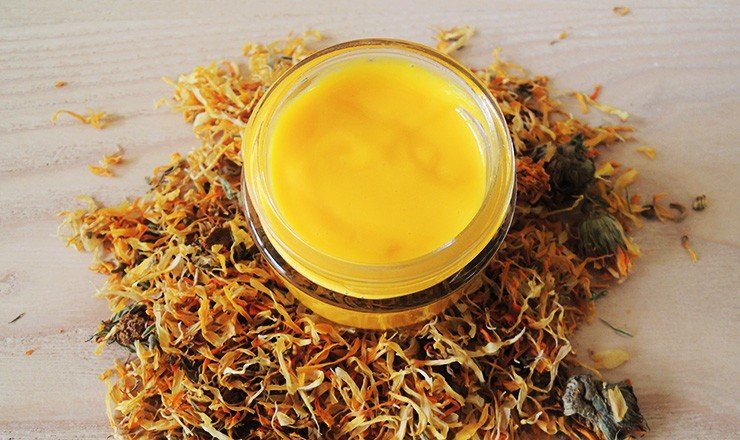Tag: cold method
Recipe submitted to the "Saponi e buoi dei paesi tuoi" self-production contest. Why does it represent the proverb "saponi e buoi dei paesi tuoi?" I created this soap inspired by the enchanted forests and meadows of the Monti Sibillini that I have the joy of admiring from my windows every day. It's as white as the silent snow that soothes the souls of those who wander through the sleeping woods during the winter season. A yellow band runs through the middle, where some dried petals of calendula, chamomile, violet... are concentrated to remind us both of the sun's rays that penetrate the dense foliage of the woods, creating the fantastic sensation of being able to spot a fairy at any moment, and of the flowers that flood these mountains' meadows with shapes and colors in spring and summer. It's a gentle, refreshing soap that leaves the skin as soft as the waters of the countless streams that gush happily from those rocks. In honor of the "fairy" who has dwelled among these magical places for centuries and still fascinates even the most incredulous, I named it the Sibilla soap.
Recipe submitted for the "Saponi e buoi dei paesi tuoi" self-production contest. Why does it represent the proverb "Saponi e buoi dei paesi tuoi" (Soaps and oxen from your own country)? When asked about my hometown, I was taken aback.
Then I thought that we are what we eat, and immediately, Pizzocheri and Papina came to my mind, two dishes linked to my childhood (I believe I tasted the former when I was just a few months old). When I hear them mentioned, I feel a sense of belonging to these Lombard places... The flour I used for the soap dough is the same one used to make the famous Valtellina Pizzoccheri, made from buckwheat. The Valtellina has adopted me since I was a few months old, and I spent all my summer and winter vacations there until I was 20 (nowadays, I only return for special occasions or in the summer when Milan is way too hot!). Then there's Papina, the traditional cake of Brianza tradition, which my mom often cooked (and still does, I believe). But not just my mom: in fact, a vegan version, super energizing but light (and also sugar-free), came to life in my kitchen a few days ago... And that's how it all comes together. The cocoa is a clear reference to the cake, just like the dates and prunes that replace the raisins, which I don't like (besides, they are my favorite fruits: prunes in the summer and dates during this season – even now as I write :)). To give it the shape of a "cake slice," I put the dough in a small plastic container with a cubic shape: at local fairs, Papina is cut and served in little cubes. I placed the resulting soap dough on a bed of Erba Livia: the same fields where, as a child, I used to lie down to catch my breath after running around (it's a type of grass that grows in the high mountains). I can almost smell it... In fact, as I take photos, I can! It somewhat resembles the scent of sage and lavender. Erba Livia is a typical herb from the valley, used as an infusion to soothe the stomach. I suggest putting it in the container along with the soap dough to relax the senses before the shower.
Recipe candidate for the "Saponi e buoi dei paesi tuoi" (Soaps and Oxen from Your Own Country) self-production competition. Why does it represent the proverb "Saponi e buoi dei paesi tuoi"?
A small village nestled on a hill at 650 meters above sea level, adjacent to the Pollino National Park, with fewer than a thousand inhabitants, far from other urban centers, 70 minutes from the sea, distant from train stations, airports, universities, and so on. This humble soap was created to highlight the naturalness, richness, and sweetness in the poverty of our region.
The naturalness of our APPLES: small, ugly, and nameless apples, but naturally flavorful and beneficial.
The richness of the POMEGRANATE: those stolen from the orchard at the end of the village to be sold at the fair on the third Saturday of October, gathering 50 lire for each fruit. "What richness?" But the wealth is in the fruit, rich in minerals, vitamins, beneficial substances for the body (flavonoids, antioxidants, and various types of active acids).
The sweetness of HONEY: the one we all have in the pantry and in the drawer of our memory, the one that grandma obtained from a beehive found on a tree in the countryside.
OLIVE OIL: the best defense against allergies or other skin irritations that can occur from using industrial soap.
Jam like marmelade, like a mix of cultures that meet and mix. This soap is dedicated to a dear friend of mine who lives in Ammam (Jordan) who this summer brought me a wonderful extract of a local incense, of myrrh if I remember correctly. An extract with a magical, intense and enchanting scent. It is a resin obtained from the incisions on the trunk of the plant, from which a sort of latex begins to exude. This extract is obtained with antiseptic and antibacterial properties. To this exotic ingredient I added something from my home, our olive oil that we produce every year here in the Tuscan hills. An excellent oil (even in the kitchen) that makes this soap very delicate and emollient!
Faenza is considered by all to be the "city of ceramics" par excellence. Since ancient times Faenza has been famous for its ceramics and even today the Faenza workshops are among the most renowned. I wanted to dedicate this soap to my city, using clay as a characterizing ingredient!
The clay is malleable to make ceramics but (the green one) is also a real cure-all for the skin. For example, it can be used to make masks with clay and water. It can be applied to the skin of the face and body .. after about ten minutes the clay dries completely, becoming a rigid film that adheres perfectly to any roughness. The mask helps exfoliate the skin by eliminating surface dead cells making the skin smoother and softer!
Recipe submitted to the "Saponi e buoi dei paesi tuoi" self-production contest. Why does it represent the proverb "Saponi e buoi dei paesi tuoi"? The grape and olive harvest is a time to gather all the relatives who live far away due to work migration. It's a festive moment and brings joy to the elderly when they pack a container of olive oil and one of wine in their children's suitcases. It's added to the freshly squeezed grape must to keep the wine good throughout the year without the addition of chemicals and preservatives. Why Vincotto:
It's added to the freshly squeezed grape must to keep the wine good throughout the year without the addition of chemicals and preservatives.
It's used to eliminate the annoying bubbles on the palate.
It's used in dessert preparation.
It was used to make delicious snow granitas to be enjoyed by the fire during cold winter days.
Why olive oil:
It's natural.
It's found in our grandparents' pantries.
It has been known since ancient times for its beneficial properties on the skin.
It has emollient and softening properties without the addition of artificial colors or fragrances, resulting in a completely natural, biodegradable, and non-polluting soap.
It's the best guarantee against allergies or other skin issues caused by the use of industrial soap.
In November, in the countryside of Vieste, groups of farmers dedicated to the olive harvest meet in the centuries-old olive groves of which this city is rich. The olive groves of the Gargano look like particular and exceptional sculptures that mother nature had fun creating. The oil that these plants produce is genuine and delicious, with extraordinary and well-known cosmetic properties it has been the oil for soap for centuries, rich in emollient substances, the soap produced is a hard and compact soap with excellent cleaning power. However, since it produces little foam, which I like a lot, I thought about adding a small percentage of coconut oil to our yellow gold.
The oil that is produced in the province of Foggia and therefore also in Vieste, has received the denomination of extra virgin olive oil D.O.P. Dauno Gargano. The oil produced from olives harvested using the stripping method by 30 January and pressed within three days since harvesting receives this denomination.
The "liquid gold" flavors every dish giving the typical cuisine of the Gargano an unmistakable flavor that greatly contributes to enhancing the quality of the various ingredients that make up and characterize any element, I thought then: why shouldn't I accept this invitation from La Saponaria and produce a soap worthy of my land? I took up this opportunity with both hands, because producing soap is like entering a magical world, having a space to relax after the stress of the day and, in addition to remembering my origins, when my grandparents produced soap at home. This explains why I really love making every type of recipe that comes my way, however, this time thanks to you I made my own recipe, typical of the area where I live where olive oil is produced in abundance !! "
The dandelion flower fills the fields of the Bergamo plain, while the elder flowers color the banks of the corn fields white. The lime tree, with its scent, and the mountain pine rise on the Orobic pre-Alps. Dandelion root and elderflower have therapeutic value in cases of acne-prone skin. Linden oil has moisturizing, emollient and anti-inflammatory properties. Mountain pine, represented here by its essential oil, has balsamic properties.
Recipe submitted to the "Saponi e buoi dei paesi tuoi" homemade soap contest. Why does it represent the proverb "Saponi e buoi dei paesi tuoi"? Cedar has been a significant economic resource in the past in almost all the countries along the Tyrrhenian coast of Calabria. Now, production has decreased due to rampant construction, but there are still some cedar orchards. It's a fruit as bitter as these places but rich in skin-softening substances. There are also cosmetics made from cedar.

